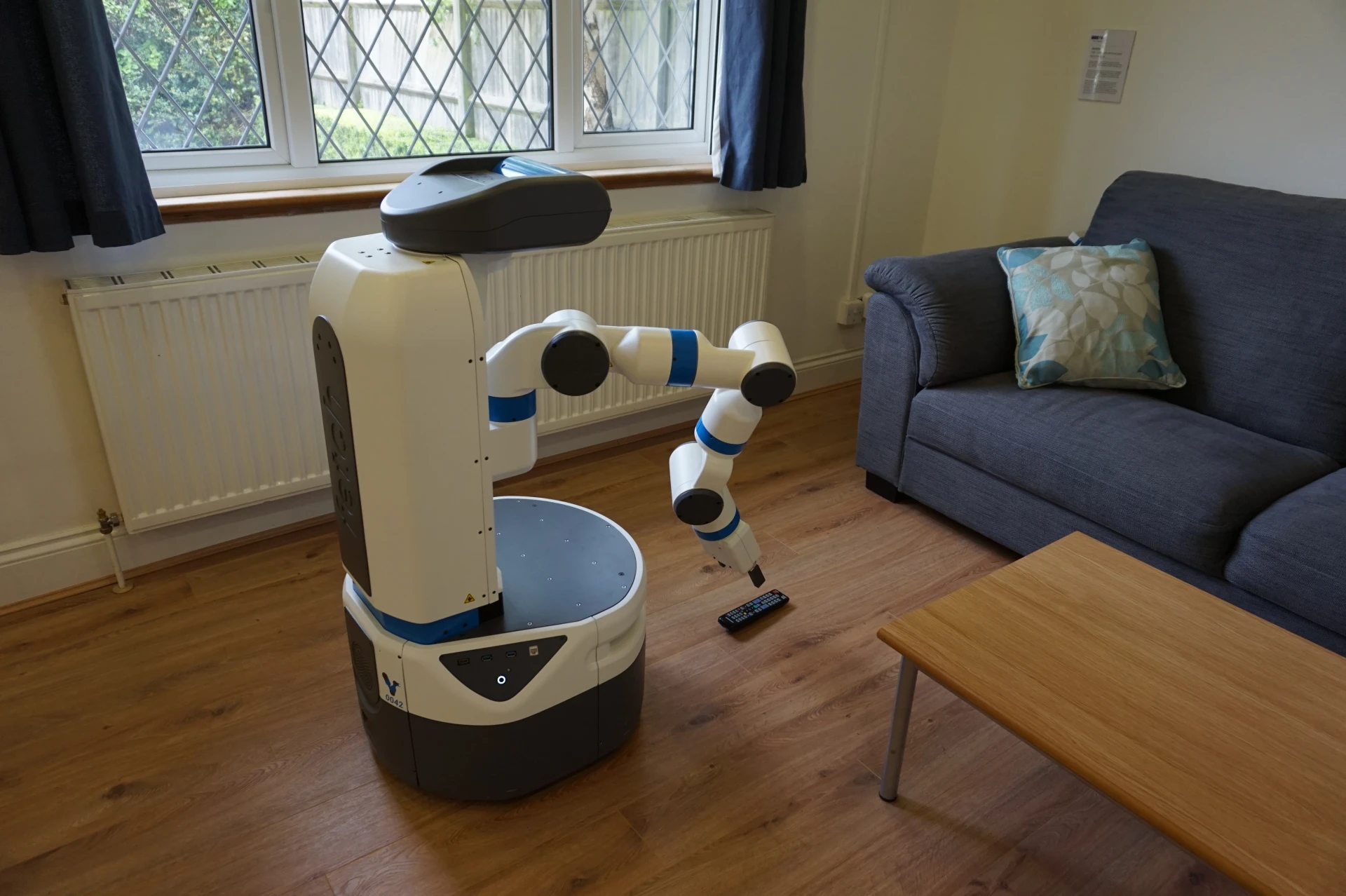This website uses cookies that store information about your usage of the page. By continuing to use this page you confirm you are happy with that.
Review and change how cookies are used.
"The overarching aim of our research is to design and test scenarios in which robots and people can do things together on an equal footing."
— Professor John Senior, Pro Vice-Chancellor (Research and Enterprise), University of Hertfordshire
University of Hertfordshire researchers are using Robot House to explore how to ensure robots act in a socially acceptable way to engender trust among the people that interact with them. Many of our research projects are focused on investigating how robotics technologies can support independent living in later life. Our research is embedded in the University of Hertfordshire's AI & Robotics focus that looks at how robots can adapt to human interaction.
An ESPRC Strategic Equipment Award – a key initiative designed to enhance the UK’s scientific capability in national priority research areas – has funded the purchase of the latest robotics hardware and systems upgrades. This has allowed University of Hertfordshire to open the doors of Robot House 2.0 to external research groups and industry in the UK and internationally. Robot House is listed as a capital facility in the EPSRC UK Robotics and Autonomous Systems (RAS) Network.
Having upgraded the Robot House facility and installed our new robotic systems, we are open for new collaborations. Organisations and research groups interested in working with us are welcome to contact us.
We are involved as a partner in the Horizon 2020 RIA project SWAG to research soft human-assistive exoskeletal devices and the EPSRC funded EMERGENCE network with the aim to tackle frailty. Robot House will be supporting the research network and mini projects within this network, providing its infrastructure, support, and expertise.
Robot House currently enables six PhD student projects. Three projects aim to learn and identify when humans engage in various daily activities within the house. Other projects are looking at the personalisation and trustworthiness of social robots for long-term engagement.
We have in recent times supported two PhD students through the European Commission’s Marie Sklodowska-Curie Fellowship scheme SECURE. One project that has now finished was using the Robot House to explore the factors that influence whether humans trust robots; another is looking at how robots should approach humans – in terms of their movement and behaviour – in a residential setting.

Recently, the SocCred project assessed how potentially conflicting safety and social behaviour requirements on a robot may be managed. Researchers have experiments to examine the social acceptability of certain robot behaviours, and the effect that these have on a user's willingness to respond to the robot's safety alerts.
The development of the Robot House facility has been shaped by a series of collaborative EU-funded projects involving University of Hertfordshire. The ACCOMPANY project used the robotic home assistant Care-O-Bot 3 inside the Robot House to develop and test new technological solutions for supporting older people in a motivating and socially acceptable manner. We continue to operate this robot alongside its successor Care-O-Bot 4, the only one currently in the UK. The LIREC project (Living with Robots and Interactive Companions) used the Robot House to develop robotics technologies that can assist people in the home environment, while the Cogniron project studied the reasoning and learning capabilities of companion robots in human-centred environments.
These are more detailed descriptions of concluded research projects that have involved the Robot House.
Research carried out inside the current and previous iterations of the Robot House has resulted in numerous journal papers and conference proceedings over the last decade. Please refer to our list of publications.
Meet the resident robots that can participate in research studies inside the Robot House, including the Care-O-bot 4.
Robot House has opened its doors to academia and industry in the UK and internationally. Find out how to access the facility.